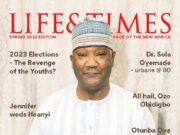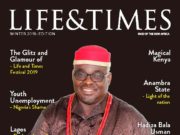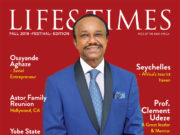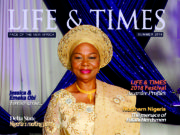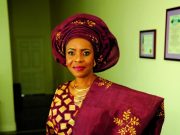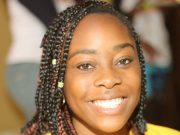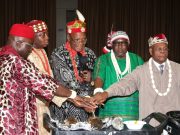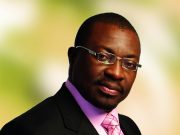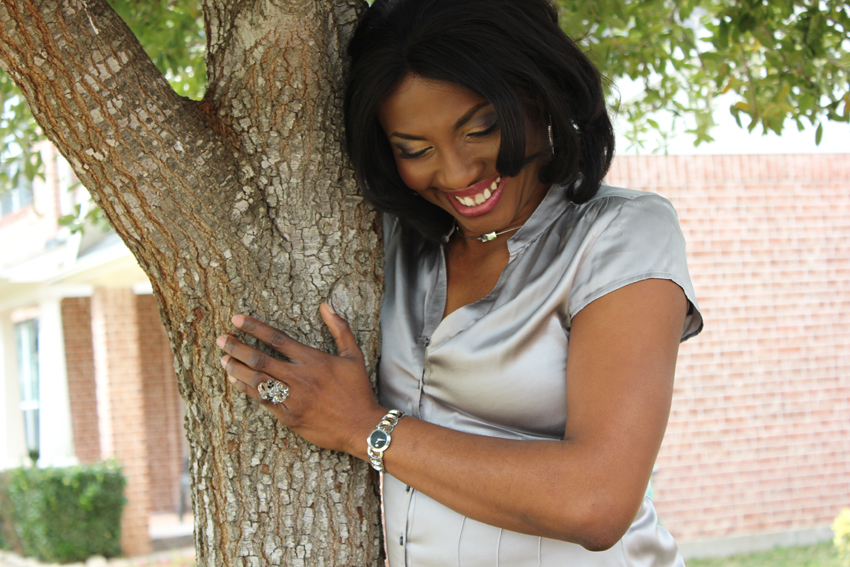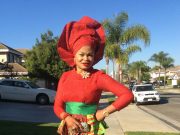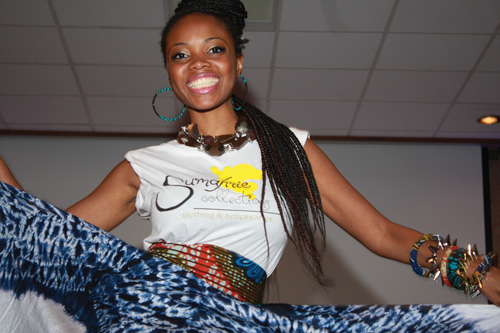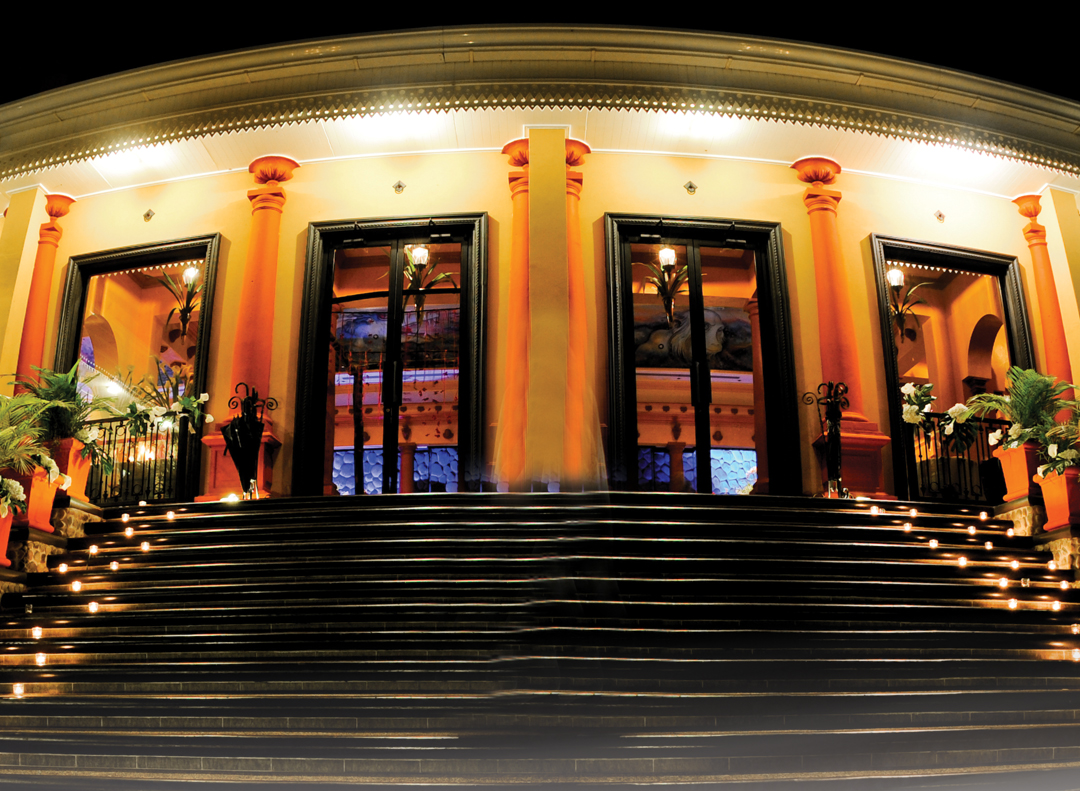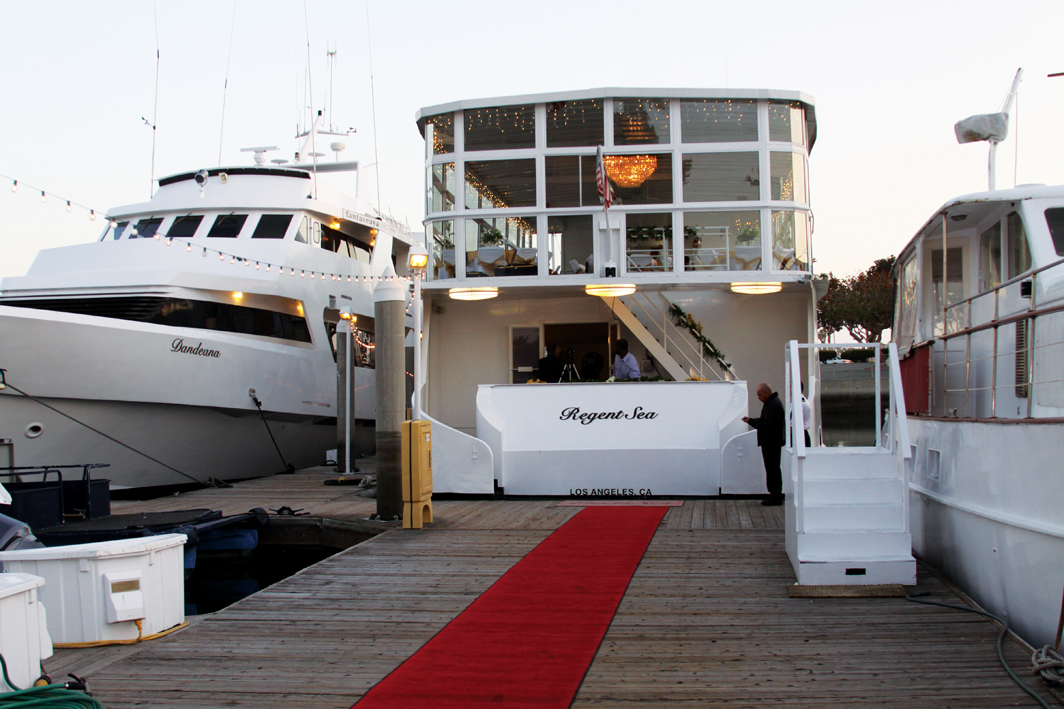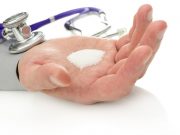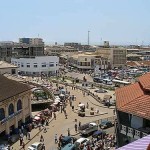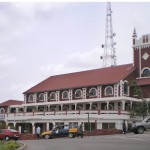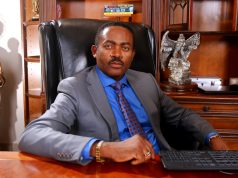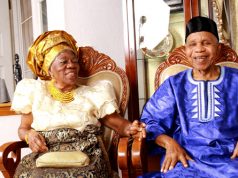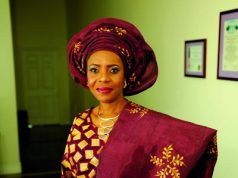Ghana was the first place in sub-Saharan Africa where Europeans arrived to trade – first in gold, later in slaves. It was also the first black African nation in the region to achieve independence from a colonial power.
Ghana Before Independence:
Ghana before Independence on March 6, 1957 was called the Gold Coast. The earliest Europeans to arrive here were the Portuguese in the 15th Century. On their arrival, they found so much gold between the River Ankobra and the Volta and subsequently named it “da Mina”, meaning The Mine. In 1482, the first castle was built in the Gold Coast by the Portuguese at Elmina. This was built to enhance their trading activities especially gold and slavery.
By 1598, the Dutch were in the Gold Coast to also trade. They built forts along the coastal areas notable among them being the Komenda fort. In 1637, they captured the Elmina castle from the Portuguese and that of Axim (Fort St. Anthony) in 1642. Many other European traders came to the Gold Coast to trade. These included the British, Danes and Swedes. These European traders built several forts along our coastlines. In 1872, the Dutch lost interest in the coast and ceded their forts free to the British. Thus ended a period of Dutch occupation lasting 274 years.
Ghana in pictures:
By 1874, the British were the only Europeans in the Gold Coast and thus made it a crown colony. This in effect gave them total control.The British government established their headquarters at Cape Coast Castle. This had been their headquarters since 1662 and is one of the greatest historical sites in the country. It has numerous dungeons which were used to keep slaves before being transported to the Diaspora. There had been many wars fought between the people of the Gold Coast and the British over governance. In 1874, an army under Sir Garnet Wolseley crossed the Pra River into the Asante territory.
The Ghanaians referred to this War as the “Sagrenti War” because they could not pronounce Sir Garnet’s name correctly. The British force, this time proved too strong for the Asante who, after a long and brave fighting, agreed to sign a peace treaty at Fomena. At about the same time the British defeated the Anlo people in the Volta area. On the 12th of September, 1874, the whole of Southern Ghana including Anloland became a British colony. The Capital was removed from Cape Coast to Accra two years later.
After the Second World War (1939-1945), things began to change in the then Gold Coast. The discrimination against educated Ghanaians in the civil service was on the increase and high positions were reserved for white men while Ghanaians became “hewers of wood and drawers of water”. The European and Asian firms were also seriously exploiting the Africans. The Ex-servicemen (Ghanaian soldiers who fought in the World War), helped in another way to expose the weakness of the British. They realised that they performed better than the whites on the battlefield. These Ex-servicemen again saw the struggle for independence in India and Burma where most of them went to fight. They were therefore inspired to struggle against the same British in Ghana after their return from the war. The first political party was formed in August 1947 by Paa Grant, Dr J.B Danquah and others. It was named the United Gold Coast Convention (U.G.C.C). Its slogan was “Self Government within the Shortest Possible Time”. The U.G.C.C. therefore invited Dr. Kwame Nkrumah home from his studies to become the full-time General Secretary of the Party. The U.G.C.C. had earlier on criticized the Burns Constitution of 1946 introduced by Governor Sir Allan Burns.
Ghana in pictures:
In January 1948, Nii Kwabena Bonne III, a Ga Chief organized a general boycott of all European imports. A series of riots followed the boycott in early February, 1948. The last straw that broke the camel’s back was the famous February 28, 1948 incident. Unarmed ex-servicemen marched to the Christiansborg Castle on that day to submit a petition to the Governor about their poor conditions. Superintendent Imray, a white police officer, ordered the policemen at the castle to shoot. When the police refused to do so, Imray himself opened fire on the unarmed soldiers at the Christiansborg crossroad. Three of the leaders namely; Sergeant Adjetey, Private Odartey Lamptey and Corporal Attipoe fell dead. Thereafter, riots broke out in Accra. European and Asian stores were looted by the angry mob. The rioters forced open the Central Prison and set free its inmates. After the riots, the Nationalist leaders in Ghana sent a strong worded cable to the Secretary of State in London. They blamed the Governor, Sir Gerald Creasy, greatly. They called him “Crazy Creasy” because he had failed to handle the problems facing the country.
The Secretary of State however blamed the Nationalist leaders for being responsible for the disturbances in the country. Consequently, six of the leading nationalist were arrested and detained. They were popularly referred to as the BIG SIX. These leaders were J.B Danquah, Kwame Nkrumah, Obetsebi Lamptey, Akuffo Addo, William Ofori Atta and Ako Adjei. The U.G.C.C. which awakened fervent national consciousness in the Gold Coast was what might be described as a liberal group with its slogan of “Self-government in the shortest possible time.” This attitude did not please Nkrumah who wanted “Self-government Now”.
Following disagreement of ideologies, Kwame Nkrumah left the U.G.C.C. and formed a more radical nationalist party -Convention People’s Party (C.P.P) on June 12th, 1949 with its motto “self-government now”. He was joined by Kojo Botsio, K.A Gbedemah and others. On 9th January, 1950 the C.P.P organized a nation-wide boycott and strike for workers and the masses. The people refused to buy all British goods. Workers were warned not to cause any trouble. In the cause of the riots however, two policemen were shot dead. On January 21st 1950, Nkrumah and other leading C.P.P members including Kojo Botsio and K.A. Gbedemah were imprisoned at the James Fort Prison, Accra, on charges arising from pursuing what was termed as “Positive Action” against the Government. The imprisonment of Nkrumah made him a hero and martyr in the eyes of the people.
In 1951, the pace was set for general elections. Kwame Nkrumah was in prison when the elections were conducted. He overwhelmingly won the elections and was released by the then Governor, Sir Charles Noble Arden-Clark to head the new government. This however became the British Colony’s first African government. In March 1952, Kwame Nkrumah was designated Prime Minister. He was to appoint a cabinet, which was not to be responsible to the Governor but the Assembly. Kwame Nkrumah in June 1953 submitted proposals for a new constitution. It was upon those that the April 1954 constitution was introduced making the country virtually self-governing. This new constitution provided for an All-African cabinet from an enlarged legislature.
A general election followed in June 1954 from which the C.P.P won 79 out of the 104 seats of the National Assembly. In 1956, another election was held in response to a pledge by the British Secretary of State for the colonies that if the newly elected legislature, by a reasonable majority, passed a resolution calling for independence; a firm date for the changeover would be announced. C.P.P won 71 out of the 104 contested seats. The British Mandated Togoland also held a plebiscite to join the Gold Coast. This action opened the way for Ghana’s Independence and on 6th March, 1957, the curtain was drawn on the old order. The country emerged as the first country in Africa, South of the Sahara to regain independence from colonial rule.
A new chapter was opened in the history of Ghana. On the eve of Ghana’s independence, Kwame Nkrumah (then Prime Minister) proclaimed at the old Polo Grounds in Accra: “At long last, the battle has ended and Ghana, our beloved country is free forever.” Ghana spearheaded the political liberation of colonized Africa from the very first day of her Independence. Dr. Nkrumah championed the cause of African Unity which let to the formation of the Organisation of African Unity (OAU), now the African Union (AU). Ghana became a sovereign member of the United Nations, the Commonwealth and the Non-Aligned Movement.
First Republic:
On 1st July 1960 Ghana became a Republic In 1966, the Ghana Armed Forces and Police led by Lt. Col. E. K. Kotoka and Maj. A. A. Afrifa overthrew Nkrumah’s administration and the first Republican Constitution of Ghana. A National Liberation Council (NLC) took office, headed by a retired army officer, General J. A. Ankrah. Lt. General A. A. Afrifa, in 1969, succeeded General Ankrah as the Chairman of the NLC.
Second Republic:
Dr. Kofi Abrefa Busia’s Progress Party (PP) took over from the NLC by winning the 1969 elections. The Progress Party Administration with Dr. Busia as Prime Minister and former Chief Justice Edward Akuffo Addo, one of the Big Six as President, was overthrown by a military coup in 1972 led by the then Col. I. K. Acheampong. He formed and chaired a military junta, the National Redemption Council (NRC). General I. K. Acheampong became the Head of State and Chairman of the NRC. The name NRC was later changed to the Supreme Military Council (SMC). General F.W.K. Akuffo replaced General Acheampong in a palace coup in July 1978.
Third Republic:
The SMC II was overthrown on 4th June 1979 through a mutiny by some officers and men of the Ghana Armed Forces who established an Armed Forces Revolutionary Council (AFRC) with Fit. Lt. Jerry John Rawlings as Chairman and Head of State. The AFRC was in office for only three months. On 24th September 1979, the AFRC handed over power to Dr. Hilla Limann leader of the People’s National Party (PNP) which won the 1979 elections. The Limann administration and the Third Republican Constitution of Ghana were overthrown in yet another military coup in Ghana’s post Independence history in 1981.
The coup was led by Flt. Lt. Rawlings who again became Head of State and Chairman of a Provisional National Defence Council, (PNDC) which he established. The PNDC ruled Ghana from 31st December 1981 to 7th January 1993. A combination of internal and international pressure factors led to a return to constitutional multi-party democratic rule in 1993. In the Presidential election held on November 3rd 1992 Flt. Lt. Rawlings contested on the ticket of the National Democratic Congress (NDC) and beat eminent African historian and human rights activist Prof. Albert Adu Boahen, the flag bearer of the New Patriotic Party, into second place. In the Parliamentary elections the Progressive Alliance, made up of the National Democratic Congress, the National Convention Party and the Eagle Party won 198 seats out of the total of 200. Four other parties, the NPP, PNC, NIP and PHP boycotted the parliamentary elections on account of dissatisfaction with the electoral arrangements.
Fourth Republic:
The Fourth Republic was inaugurated on January 7th 1993 with the swearing in of H. E. Flt. Lt. Rawlings as President and his running mate, Mr. Kow Nkensen Arkaah as Vice President. On December 7th 1996, Flt. Lt. Rawlings was re-elected for a second four-year term as a President, with Prof. John Evans Atta Mills as his running mate. In the 1996 elections, President Rawlings beat Mr. J. A. Kufuor of the NPP to second place. In the Parliamentary elections, the NDC won 133 seats, the NPP 61 seats, PCP 5 seats and PNC 1 seat.
Kufuor Wins Two Terms In Office:
In the third Presidential and Parliamentary elections of the Republic, held on December 7th 2000, the New Patriotic Party (NPP) won 100 seats while the National Democratic Party (NDC) obtained 92 seats. The People’s National Convention (PNC) obtained 3 seats, independent candidates 4 seats and Convention People’s Party (CPP) 1 seat. In the Presidential elections, none of the seven candidates had 50% plus one vote as required under the Constitution. Thus in the Presidential run-off on December 28th, 2000, between the two candidates with the highest votes, Mr. John Agyekum Kufuor (NPP) emerged the winner with 56.90% of the valid votes cast while Professor John Evans Atta-Mills of the (NDC) had 43.10%. In December 2004 President John Agyekum Kufuor won a second and final four-year term as President of Ghana.
John Evans Atta Mills wins 2008 elections:
Professor John Evans Atta Mills (born 21 July 1944) who is currently the President of the Republic of Ghana won the Forth Presidential and Parliamentary elections of the Republic, on the ticket of the National Democratic Congress (NDC). He was inaugurated on 7 January 2009, having defeated the ruling party candidate Nana Akufo-Addo by 50.23%–49.77% in the 2008 election. None of the seven candidates in the 2008 Presidential elections did have 50% plus one vote as required by the Constitution. The Presidential run-off which was a straight contest between Professor John Evans Atta Mills of the NDC and Nana Akufo-Addo of the NPP held on December 28th 2008 could not also produce a clear winner until Tain Constituency decided and Professor Mills emerged as the President-elect. Professor Mills was Vice-President from 1997 to 2001 under President Jerry Rawlings, and he stood unsuccessfully in the 2000 and 2004 presidential elections as the candidate of the National Democratic Congress (NDC). He died in Office on July 24, 2012.
John Dramani Mahama
(Born 29 November 1958) has been President of Ghana since July 2012. He was the Vice President of Ghana from 2009 to 2012, and he took office as President on 24 July 2012 following the death of his predecessor, President John Atta Mills. He was elected to serve his first term as president in December 2012 following a peaceful election. A respected communication expert, historian, and writer, Mahama was a Member of Parliament from 1997 to 2009 and Minister of Communications from 1998 to 2001. Decentralisation: Vital to this evolutionary, if checkered, process is the decentralization of power to regional, district, local and unit levels across the country. There are 138 district administrative set ups and assemblies. The districts are administered by assemblies of directly elected and appointed members. District Chief Executives (DCE’s) who head the assemblies are appointed by the incumbent President and approved by the District Assembly.
*****Source, Ghana Government Portal http://www.ghana.gov.gh/index.php/about-ghana/ghana-at-a-glance/1237-know-more-about-ghana
